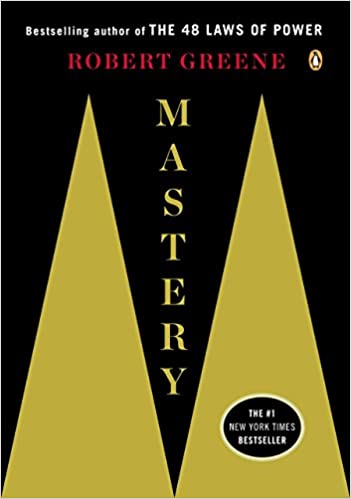
Mastery
by Robert Greene
⏱ 15 minutes reading time
🎧 Audio version available
Meaning is Key
Have you tried dozens of those so-called cutting-edge “learning styles” and found that none work the way you want them to? The reason why they don’t work is because the human mind tends to prefer learning things in terms of meaning.
This powerful tool has been used for decades. In fact, we traced back the study that proved meaning is key in learning new skills to one conducted in 1973. Experts had amateur and expert chess players view a chessboard arrangement from an ongoing game. They were asked to recall the exact positions of the pieces.
Of course, the amateur players could barely recall anything. And as you expect, the experts were able to recall most, if not all, of the pieces. Why do you think that is? Because the experts were able to connect the positions to a strategy they’re familiar with, the meaning behind why each piece was where it was.
The experiment moved on to the next part. The amateurs and the experts were shown the chessboard once more. This time, the chess pieces were arranged at random. When asked to recall the positions, both groups performed equally, which was poorly.
Why do you think that is? It’s because, this time, the experts couldn’t connect meaning to the random placement of the pieces. The same goes for any skill you’re trying to learn. If you’re trying to memorize chess pieces without knowledge of the game and the strategy, you’re likely to forget them.
So, make real-life connections whenever you can, understand the relevance of each part, and find a way to make it fit in the larger scheme of things.
Practice Makes Perfect
There is a reason why your teachers made you write in cursive for pages on end. It’s a fact that practice makes perfect. And humans learn best when they actually practice what they’re trying to learn. Not just study it in theory or from a book.
No matter how good your grades are or how quickly you memorize facts, most of your learning takes place once you start applying what you have learned. So practice— and practice more.
Forget about the jargon and theory of whatever skill you’re trying to learn. It’s only through trial and error that you’re going to hone that skill. No matter how unprepared you may feel, the fact that you are physically and mentally engaging continuously is already making you better. So, alternate between research and hands-on practice.
Study from the Greats
This is different from finding a mentor, which we will discuss in a moment. One way to ensure that you develop your ability to learn new skills is to have someone to look up to and learn from.
Similar to classic advice given to aspiring writers, the best way to learn to write better is to read more books and to focus on the classics. This way, they’ll learn more by seeing the different writing styles of the greats.
Learn from the experts, mimic them, and then you’ll find yourself developing your own style. This form of learning can be used to develop any skill. Whether it’s writing, learning new languages, or playing an instrument. Look up experts in your field and compare your work to theirs.
Reverse Engineer the Skill
It’s impossible to look at a skill in its entirety and learn it in one go. Even the thought is overwhelming. So, what’s the solution?
Reverse engineer the skill. Break it down into many little steps that are more manageable. With each isolated step, learn techniques to master it. And step by step, they’ll come together to make up the whole skill.
This is done, for example, with people trying to learn the guitar. Instructors often have learners try to press down a chord pattern without trying to strum the actual chord. It’s only when they’re able to reliably change between a few chord patterns that the teacher allows them to start strumming.
Seek a Mentor
Finding a mentor is probably one of the most important steps you can take when trying to learn a new skill. By this point, you may have guessed that you can’t tackle every learning aspect on your own, and that you don’t have all the answers.
So, find a shortcut. Seek an expert who has already been through everything you’re going through. Not only can they guide you, but they’re can also teach you not to make the same mistakes they did.
This is a great way to fast-track your learning.
Sleep on It
We bet you expected the opposite of this trick. Don’t they always say that a good night’s sleep is key to learning something new? If you were the kind who pulled all-nighters, then you’re well familiar with the sluggish next morning. You may think a good night’s sleep followed by practicing the skill is the best formula, but that’s not at all true.
See, while your body is physically at rest, your mind is still hard at work, processing the onslaught of information that it took in during the day and retaining the skills you learned for the future. So it’s recommended that you practice this new skill within four hours of going to sleep.
Any practice done during this timeframe allows your brain to cement the learning into memory more quickly into its neural pathways. And sleeping helps prepare your brain for that initial formation of memories, cementing that new information into the architecture of the brain.
The 20 Hour Rule
Forget about that 10,000 hours rule that says you need to spend years on end to master a skill. What if we told you that you only need 20 hours? 20 hours are all you need to learn a new skill.
This trick was coined by neurosurgeon Josh Kauffman, who had just become a new dad. He was suffering from chronic sleep deprivation, stress at work, and of course, the never-ending nappies. So he wondered with despair if he would ever have the time to learn anything new again.
He found the 10,000 hours rule to be too troublesome. So, he looked at the learning curve of learning a new skill. Everyone knows this curve. It’s what happens when you go from being a newbie to being competent in the skill. Kauffman discovered that you only need 20 hours to build basic proficiency in any new skill. That means that you only need to dedicate about 45 minutes a day of practice for a month.
Sprint, Don’t Run
Speaking of practice for a limited amount of time each day, this next tip will have you absorbing knowledge like Mike Ross. It’s redundant to force yourself to sit for hours and hours, totally focused on learning.
The key to retaining information about the skill is to work in short sprints and not try to run ahead. If that means practicing for just 20 to 30 minutes at a time, then do so. After that session, get up and get some fresh air, get a snack, take a short walk, maybe do some stretching, and then come back.
Related: How to Learn Anything from Scratch and Master New Skills In Record Time
Teach It to Others
Struggling with a new skill? Challenge yourself in a new way. Try to teach it to others– or even just pretend to. There is a reason your teachers gave you countless assignments to do presentations in front of the entire class. When you do this, you’re teaching the subject to the entire class. By translating the information into your own words and style, you’re cementing it into your memory.
So find a family member, a friend, a co-worker, and teach them your newly learned skill. You may surprise yourself with how much you already know.
Celebrate Each Win
And finally, this last trick is a game-changer. For every single small win that you experience during the learning process, no matter how tiny, be sure to pat yourself on the back in celebration. Positive reinforcement all the way!
Your brain will automatically release lovely serotonin and endorphins as you let joy and victory overcome you for a few celebratory moments. When you dive back in, you’ll be even more motivated to keep pushing forward.
What Is Snapreads?

With the Snapreads app, you get the key insights from the best nonfiction books in minutes, not hours or days. Our experts transform these books into quick, memorable, easy-to-understand insights you can read when you have the time or listen to them on the go.


